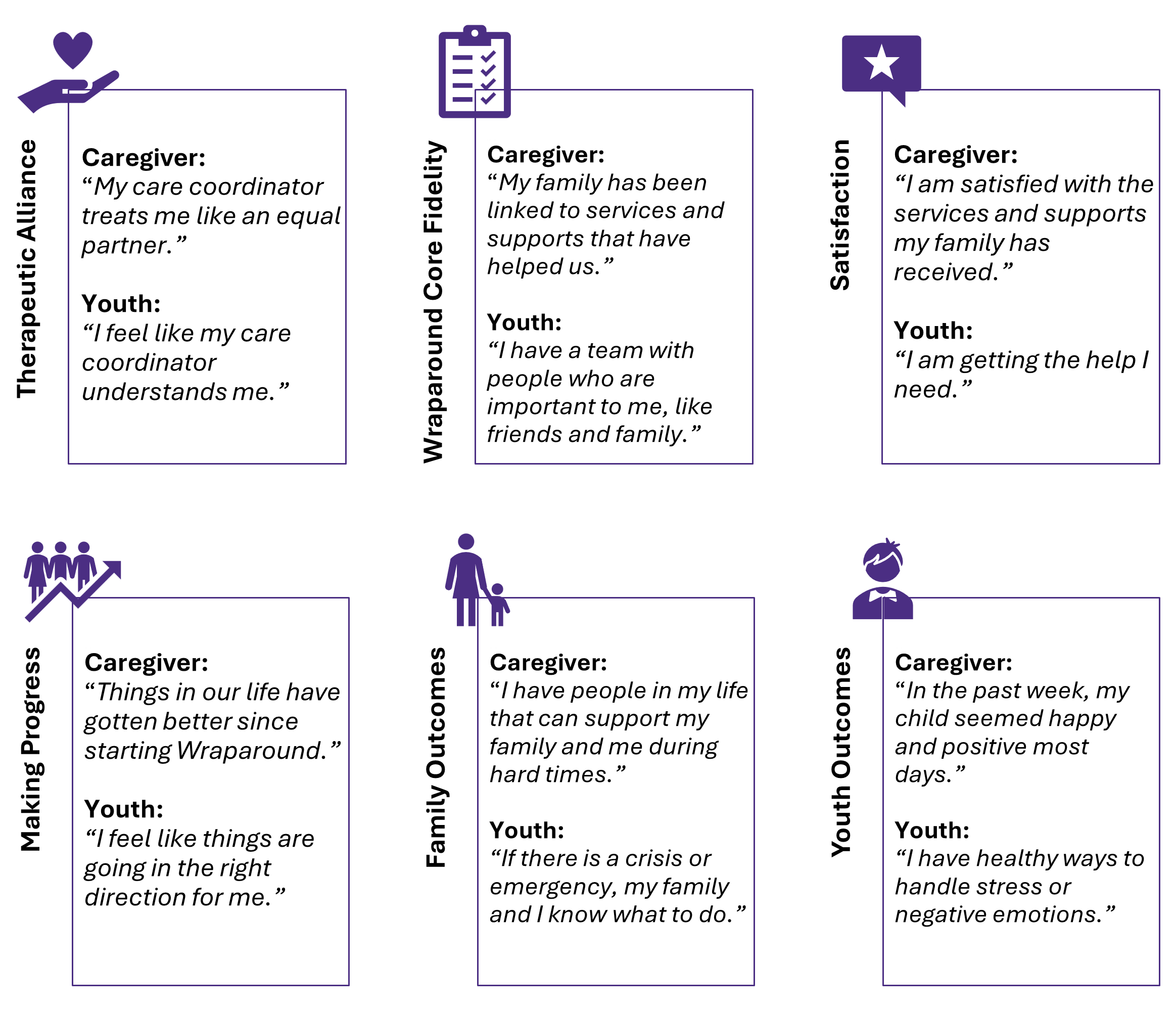National Wraparound Initiative's Wraparound Blog
Launching SMART-Wrap: The National Wraparound Community of Practice Comes Through Again!
October 26, 2025 | NWI
Over 20 years, the National Wraparound Initiative has seen many innovations that have advanced our work with youth and families. We have also witnessed many implementation challenges that can undermine the promise of individualized, team-based Wraparound care.
One huge challenge is to get reliable and consistent input from youth and families to guide service delivery at the family, supervisor, and initiative levels.
In the 1990s and 2000s, Pat Miles innovated data-informed “directive supervision” for Wraparound. More recently, youth and provider fidelity surveys have helped keep programs on track and promoted research on the relationship between Wraparound fidelity and outcomes.
However, in our current data- and survey-fatigued world, programs have struggled to get high-quality data. And, information from families is often only used long after it is collected – sometimes well after a preventable family crisis has occurred.
Launching SMART-Wrap System
With critical input from our national Wraparound community of practice, and help from our developers at 3C Institute, NWI, NWIC, and UW WERT are now launching a system we hope will get high-quality input from families to meet these longstanding needs.
Short-Message Assisted Responsive Treatment for Wraparound (SMART-Wrap) is a tool that sends quick (4 items, 30 seconds to complete) and frequent (1-2 times per month) check-ins via text message to youth and families enrolled in Wraparound.
SMART-Wrap data will then alert a care coordinator or Wraparound team if a family is struggling, disengaged, or not making progress. Meanwhile, Wraparound providers will have access to real-time data that can be used to inform supervision and evaluate quality, fidelity, and outcomes for their program or initiative.
SMART-Wrap Refinements
Thanks to input from our advisors, NWI and UW WERT has accomplished the following refinements to SMART-Wrap:
Identified SMART-Wrap domains. In 2024, we used a Delphi process to get feedback from Wraparound professionals to identify the most important information needs to be met by SMART-Wrap. Based on your input, we identified six SMART-Wrap domains:
- Therapeutic Alliance
- Core Wraparound Fidelity
- Satisfaction with Care
- Making Progress
- Caregiver and Family Outcomes, and
- Youth Outcomes.
Streamlined and finalized SMART-Wrap items. During the summer of 2025 we conducted two surveys of Wraparound experts to help us further refine the SMART Wrap tool.
Professionals who supervise, support, coach, or evaluate Wraparound responded to the survey. We also learned that experts believed 4-5 items was about the right length for caregiver SMART-Wrap surveys and that for youth, 3-4 items would be most appropriate.
Most important, we learned what data would be collected from families to best identify and avert crises, prevent disengagement, and inform supervision, coaching, evaluation and CQI. Thanks to these experts, were able to decrease our initial list by about half – ensuring that we are asking the right questions and don’t unnecessarily burden families.
Figure 1. SMART-Wrap Domains and Example Items
Click image to open larger version
The UW Wraparound Evaluation and Research Team and its partners are grateful to the NWI Community of Practice for always being ready and available to inform innovations such as SMART-Wrap.
The SMART-Wrap prototype will be launched in early 2026. Thanks to those of you who have already volunteered your organization or initiative to pilot the system. We will be reaching out in the coming month to get started.
If your organization or initiative is interested in piloting SMART-Wrap, please contact us at wrapeval@uw.edu.
— Eric Bruns, Haleigh Randall, Jonathan Olson, and Jade Richards
The UW WERT SMART-Wrap development team

